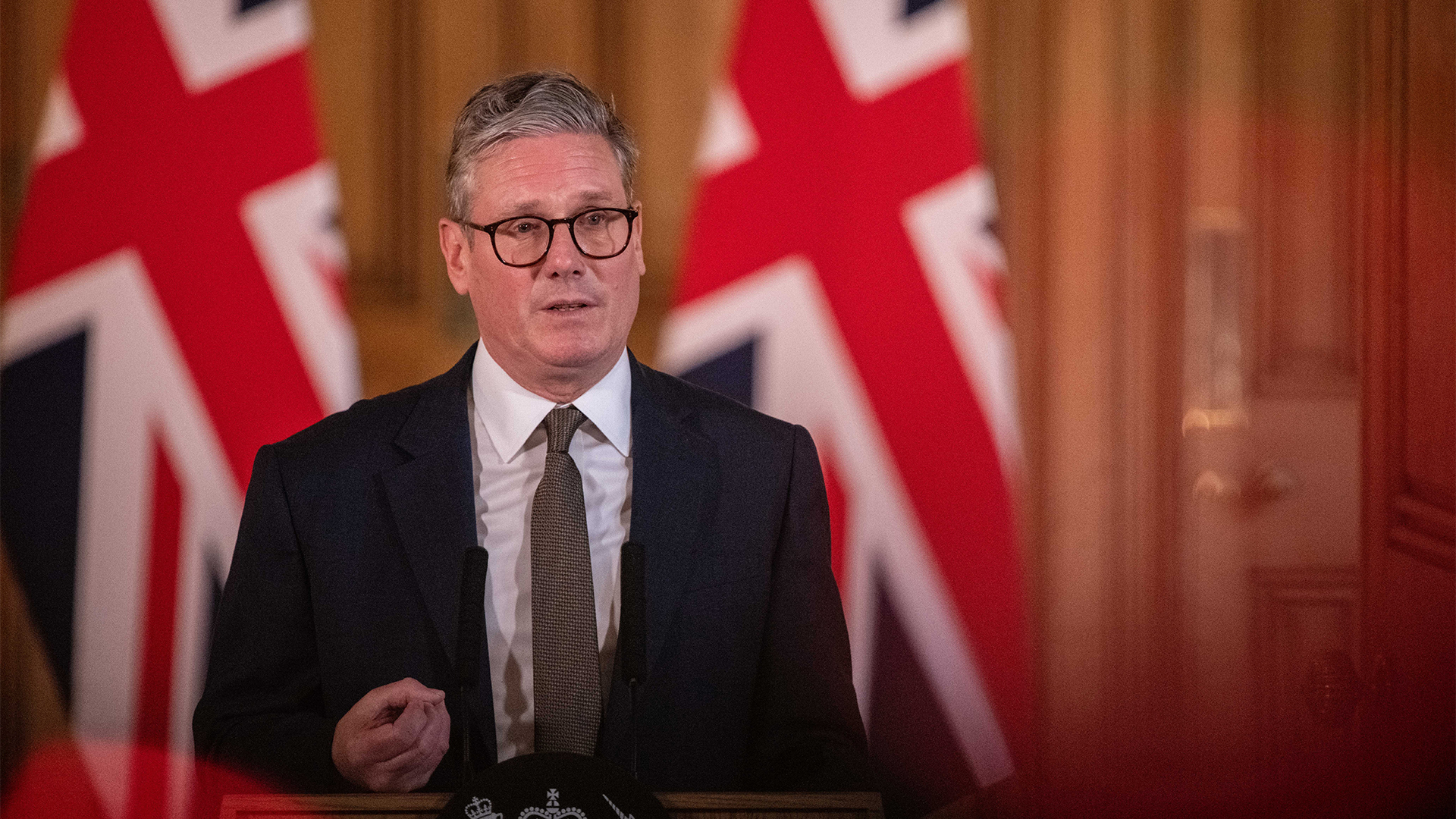Gov ditches national roaming for £5bn 'notspot' funding
Government plans to tackle mobile not-spots will not involve national roaming, with networks agreeing to extra investment


The UK's mobile operators have agreed not to go forward with national roaming plans, investing 5 billion to improve coverage in rural areas across the country currently marred by weak signal.
The introduction of national roaming laws in the UK had been proposed by the government to help eradicate the mobile notspots' that reportedly affect a fifth of the country's population.
EE, O2, Vodafone and Three have all agreed to the plans, which will see them offer better coverage to 90 per cent of the country by 2017. This will effectively halve the number of UK residents who currently experience bad signal in their area.
Culture Secretary Sajid Javid had proposed four solutions to the issue. These included national roaming, in which phones would connect to any available network when out of range of their own, as well as infrastructure sharing, reforming virtual networks and coverage obligation.
Javid said in a statement: "Too many parts of the UK regularly suffer from poor mobile coverage leaving them unable to make calls or send texts.
"Government and businesses have been clear about the importance of mobile connectivity, and improved coverage, so this legally binding agreement will give the UK the world-class mobile phone coverage it needs and deserves."
Ofcom will reportedly monitor progress of the agreement and the communications regulator may take the extra money being invested into account when deciding future licence fees.
Get the ITPro daily newsletter
Sign up today and you will receive a free copy of our Future Focus 2025 report - the leading guidance on AI, cybersecurity and other IT challenges as per 700+ senior executives
The government previously opened the matter up to response from the industry, businesses and the public until 26 November, when a final decision had to be made.
But the UK's biggest providers didn't greet the proposals enthusiastically, citing various issues the move could bring to both their businesses and their customers.
A spokesperson from O2, who claimed that the company is spending 1.5 million per day on improving 2G, 3G, 4G and Wi-Fi connectivity, told IT Pro: "We have made our concerns over the national roaming proposals very clear and have advised the government on a range of alternative solutions to achieve the same ambition, some of which we have already embarked upon."
"National roaming is a regulatory solution that will worsen the experience people have when using their phones and undermine future investment in mobile infrastructure in the UK," they added.
A report from OpenSignal into 3G and 4G connectivity around the UK found that, though London was best for both, 4G speeds had almost halved since more users signed up for the high-speed service from their network. Three was found to have the slowest 4G coverage, while EE had the best.
Dubbing national roaming a "flawed concept" that will "deteriorate network reliability for tens of millions across the UK," a spokesperson for EE told IT Pro: "We're keenly aware there are some parts of the UK where customers still can't get adequate signal levels and, while we're already working on some significant nationwide coverage improvement plans, we also need government to work more closely with the industry to remove the barriers to efficiently building more signal in more places."
Mobile operators and the government first entered talks on how to resolve the problem of notspots in the country's rural areas in June, though no formal agreement has been reached.
Vodafone is reported to have been opposed to the national roaming plans for some time.
"As Vodafone and the other UK mobile operators have told the government directly on a number of occasions, national roaming will not provide the people of the UK with better quality voice and mobile internet coverage," the company said in a statement.
"In fact, it would make coverage and quality significantly worse from the customers' perspective, with a much higher risk of dropped calls, lower battery life and negative impact on services such as voicemail."
There is concern among operators that a move towards national roaming could discourage general infrastructure improvements and drive up costs for users.
Ernest Doku, telecoms expert at uSwitch, said of the proposal: "It's encouraging that mobile blackspots are firmly on the political agenda. In this day and age, mobile signal or the lack of it really shouldn't be an issue, whether you live in the middle of the city or the middle of nowhere.
"Allowing networks to ride on the coat tails of others would remove any incentive for underperforming networks to invest in improving their existing infrastructure... Bills could rise yet again if some mobile networks try to recoup the losses through their customers."
Meanwhile, when asked for a statement regarding the national roaming plans, a spokesperson for Three simply said, "We're reviewing the consultation document."
Caroline has been writing about technology for more than a decade, switching between consumer smart home news and reviews and in-depth B2B industry coverage. In addition to her work for IT Pro and Cloud Pro, she has contributed to a number of titles including Expert Reviews, TechRadar, The Week and many more. She is currently the smart home editor across Future Publishing's homes titles.
You can get in touch with Caroline via email at caroline.preece@futurenet.com.
-
 Women show more team spirit when it comes to cybersecurity, yet they're still missing out on opportunities
Women show more team spirit when it comes to cybersecurity, yet they're still missing out on opportunitiesNews While they're more likely to believe that responsibility should be shared, women are less likely to get the necessary training
By Emma Woollacott
-
 OpenAI's new GPT-4.1 models miss the mark on coding tasks
OpenAI's new GPT-4.1 models miss the mark on coding tasksNews OpenAI says its GPT-4.1 model family offers sizable improvements for coding, but tests show competitors still outperform it in key areas.
By Ross Kelly
-
 UK regions invited to apply for ‘AI Growth Zone’ status
UK regions invited to apply for ‘AI Growth Zone’ statusNews The UK government has opened up bidding for regions hoping to secure 'AI growth zone' status.
By Emma Woollacott
-
 How Virgin Media O2 saved “millions” by enhancing data center efficiency
How Virgin Media O2 saved “millions” by enhancing data center efficiencyCase Study Reducing data center power consumption forms part of a broader sustainability drive at the telecoms giant
By Ross Kelly
-
 Medium businesses: Fuelling the UK’s economic engine
Medium businesses: Fuelling the UK’s economic engineWhitepaper A Connected Thinking report
By ITPro
-
 “Botched government procurement” leads to £24 million Atos settlement
“Botched government procurement” leads to £24 million Atos settlementNews Labour has accused the Conservative government of using taxpayers’ money to pay for their own mistakes
By Zach Marzouk
-
 UK government to run Starlink trials in Snowdonia, Lake District
UK government to run Starlink trials in Snowdonia, Lake DistrictNews The government has indicated low-Earth orbit satellites could be key to expanding connectivity to UK businesses
By Rory Bathgate
-
 Government holds talks with data centre operators over energy blackout threat
Government holds talks with data centre operators over energy blackout threatNews One data centre operator has been preparing to switch over to diesel power in the event of a national blackout
By Zach Marzouk
-
 Vodafone and Altice launch €7 billion joint venture in Germany
Vodafone and Altice launch €7 billion joint venture in GermanyNews The British telco currently offers connections to over 24 million homes in Germany, its biggest market
By Zach Marzouk
-
 EE rolls out 4G across Glasgow's underground network
EE rolls out 4G across Glasgow's underground networkNews The network is currently restricted to EE customers but is likely to expand in the near future
By Sabina Weston